This article originally appeared on Crossfader
Director: Julius Onah
Genre: Sci-Fi, Horror
Year: 2018
They learned absolutely nothing! In an unprecedented turn of events, Netflix decided to drop the third entry in the Cloverfield franchise right after Sunday’s big game. How fitting for the streaming service to acquire an entry in such a niche series, one that has built its entire reputation on elusive advertising. So, of course, it was really only a matter of time before Netflix would pull a BEYONCÉ and virtually plaster our home theaters with a triple-A title of this ilk. The catch, of course, is this: THE CLOVERFIELD PARADOX is unfathomably bad.
So here’s a quick historical recap: Bad Robot found themselves on a rather hot commodity with CLOVERFIELD, and instead of dousing viewers with dozens of vomit-inducing found footage sequels, they hired newcomer Dan Trachtenberg and enlisted everyone from Damien Chazelle to John Goodman to craft the rollicking ride that became 10 CLOVERFIELD LANE—perhaps the boldest and most brilliant switcharoo in franchising the industry had ever seen. In doing so, Bad Robot was completely untethered from the world-building of their intellectual property. No longer did they need to abide by any aesthetic formula, they simply needed to keep examining the enigmatic kaiju invasion established in the first film. The world was their oyster, and they shat the bed.
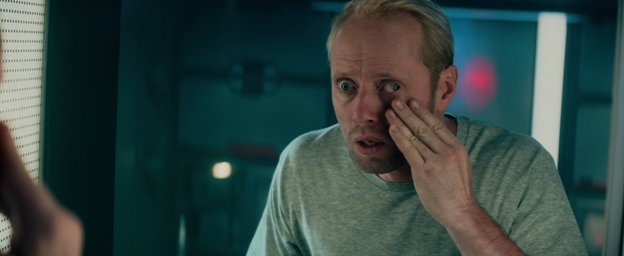
Pictured: my eyes while watching this film
So what’s the big idea, Netflix? Why follow up such a brilliantly sparse thriller with tepid sci-fi horror? THE CLOVERFIELD PARADOX follows a hilariously dysfunctional group of scientists aboard a space station in an attempt to harvest a quantum-gibberish form of energy to save the Earth from sudden collapse. It really makes no sense, but to tell you the truth, I was more than willing to play ball with the preposterous concept at hand. Where THE CLOVERFIELD PARADOX really begins to derail is in how nonsensically it tries to fit into its greater cinematic universe, shoehorning in a “back at Earth” subplot that kills all tension and opts for large-scale, planet-saving bombast that reads more akin to Michael Bay than restrained alien thriller. And just when I am willing to embrace a gonzo space thriller, it pushes the brakes to deliver some last-minute sentimentality about prioritizing family over profession. It’s a screenplay written with the grace of your iPhone word-predict function. You see, Cloverfield is many things, but its brand is firmly rooted in ordinary people saving their own skin in the midst of chaos, not heroes saving the entire world.
I’m not exactly opposed to the idea of a Cloverfield film set on a space station, but for a franchise predicated on low-budget, human stories in larger-than-life scenarios, this registers like a quantum shift. The Cloverfield films were never about astronauts leaping between rubble as their ship blows apart. They were about party goers surviving a night running from Godzilla, about a MacGyver-esque woman fending off a creepy kidnapper mid-alien invasion. THE CLOVERFIELD PARADOX could not be more off-brand if it wanted to be. It’s a film littered with visual effects it clearly can’t afford and hackneyed dialogue that is made all the worse coming off Chazelle’s fantastic rhetorical contributions in 10 CLOVERFIELD LANE.
Who exactly is to blame for what ultimately became THE CLOVERFIELD PARADOX will require some digging, but perhaps its most bothersome quality is how little it decided to borrow from Trachtenberg’s brilliant chamber piece. The irony of course is that 10 CLOVERFIELD LANE will always register as the better “streaming film” of the three entries in the franchise (it’s currently on Hulu, so . . .), what with it opting out of bombast in favor of tense verbal sparring. 10 CLOVERFIELD LANE was brilliant because of how elegantly it evaded the trappings of the tentpole. It was a contained, performance-heavy kidnapping thriller. It understood that we could make griping science fiction films that retained their humanity; the world needn’t be at stake for us to care about our character’s woes. By comparison, director Julius Onah presents his take on the series with the blockbuster eccentricity of a Vimeo Staff Pick homage to Danny Boyle’s SUNSHINE.
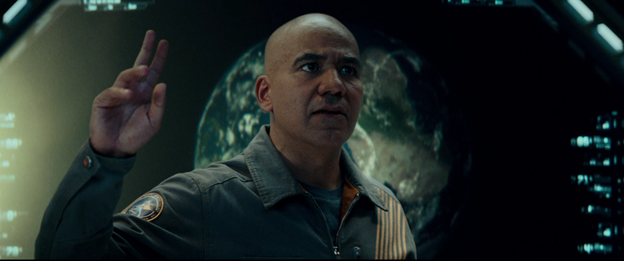
“Wait, wait, they’re saying we’re actually worse than LIFE”
It’s not that it’s clumsily acted, hastily edited, or that it’s written with the subtlety of high-school fanfiction, but much rather the complete absence of authorial presence that does THE CLOVERFIELD PARADOX in. There’s no flair, no tone; it presents itself with the overlit, oversaturated leisure of a TV movie, but it’s carrying the baggage of two fantastic predecessors on its shoulders. Were this just a cheap multiverse B-movie, nobody would bat an eye, but THE CLOVERFIELD PARADOX should know that its IP demands a certain level of excellence. Lacking in the imagination or vigor that made its prior installments such successes, it’s a film that desperately leans into that Netflix algorithm, cross-blending an ugly mishmash of EVENT HORIZON, BLACK MIRROR, ALIEN, and THE THING, all crafted with the delicacy and care of a first-time director whose only point of reference is his PS4 copy of PREY. I don’t know who won yesterday’s football game, but I know Bad Robot just lost serious leverage with their extended universe.
Verdict: Do Not Recommend


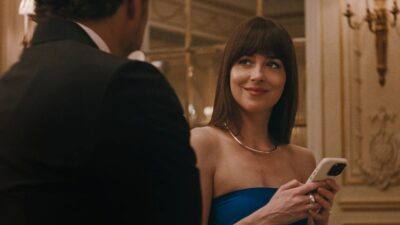
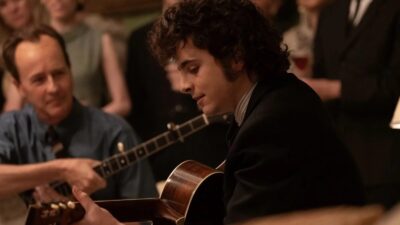
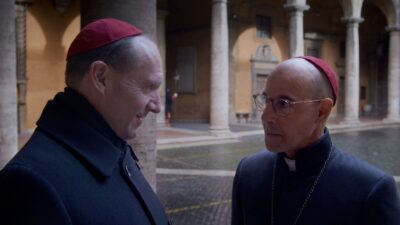
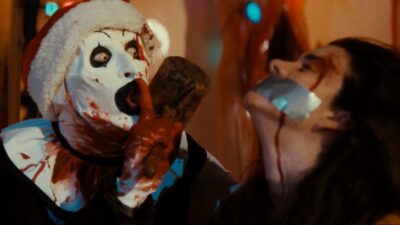


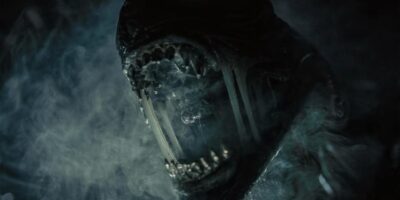
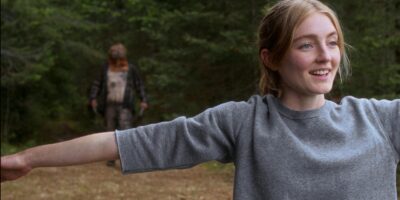

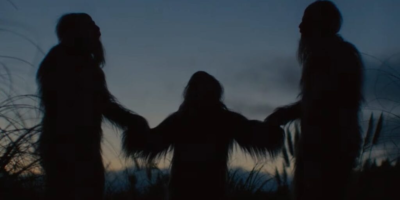
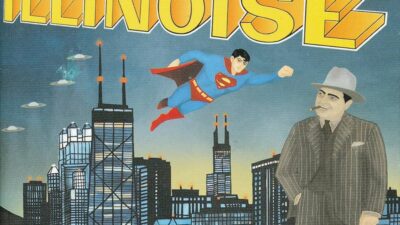
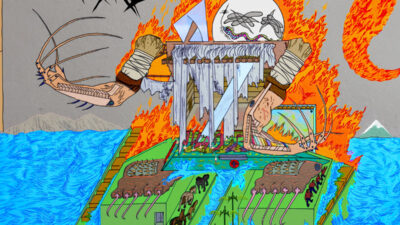


Comments